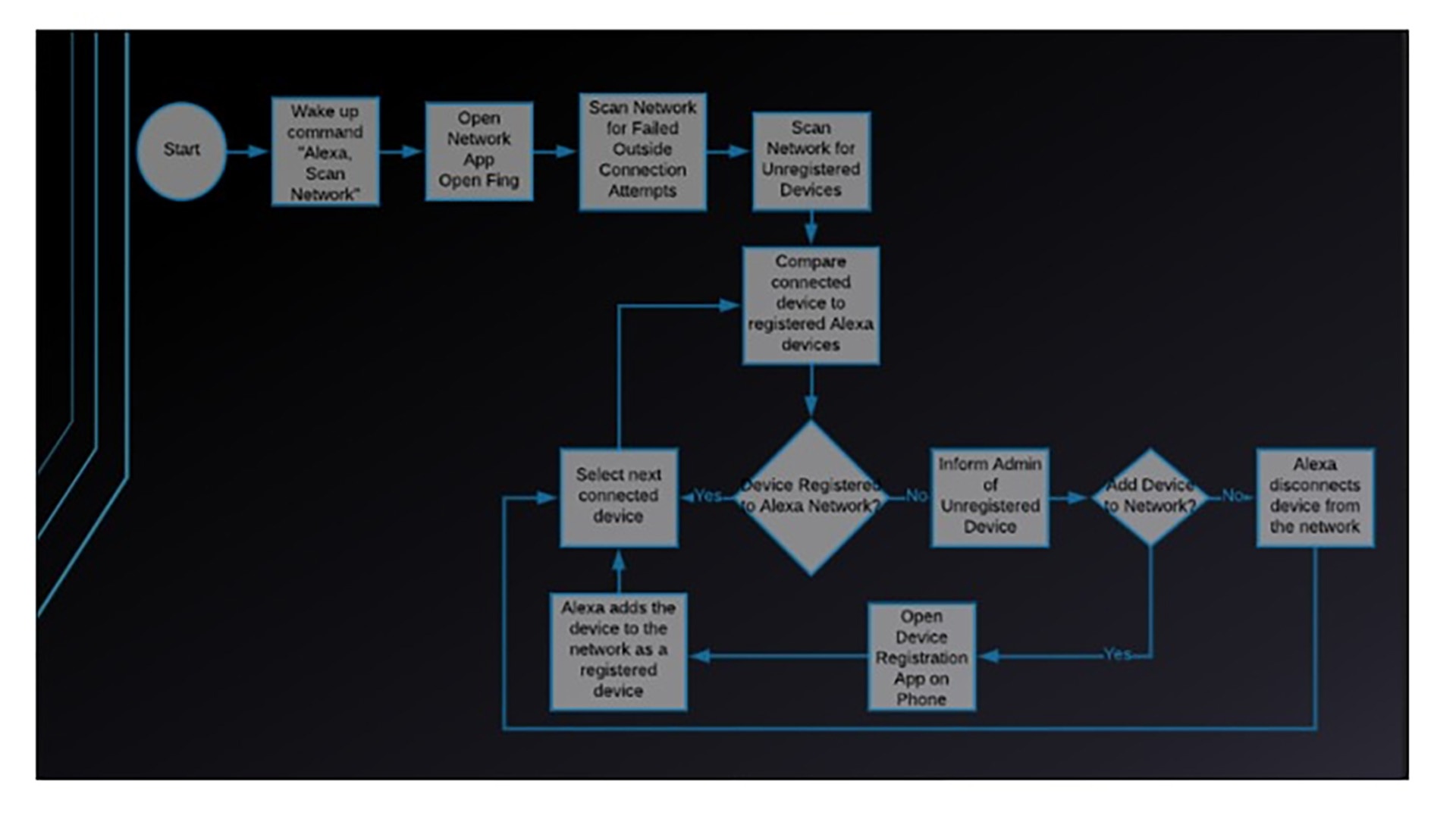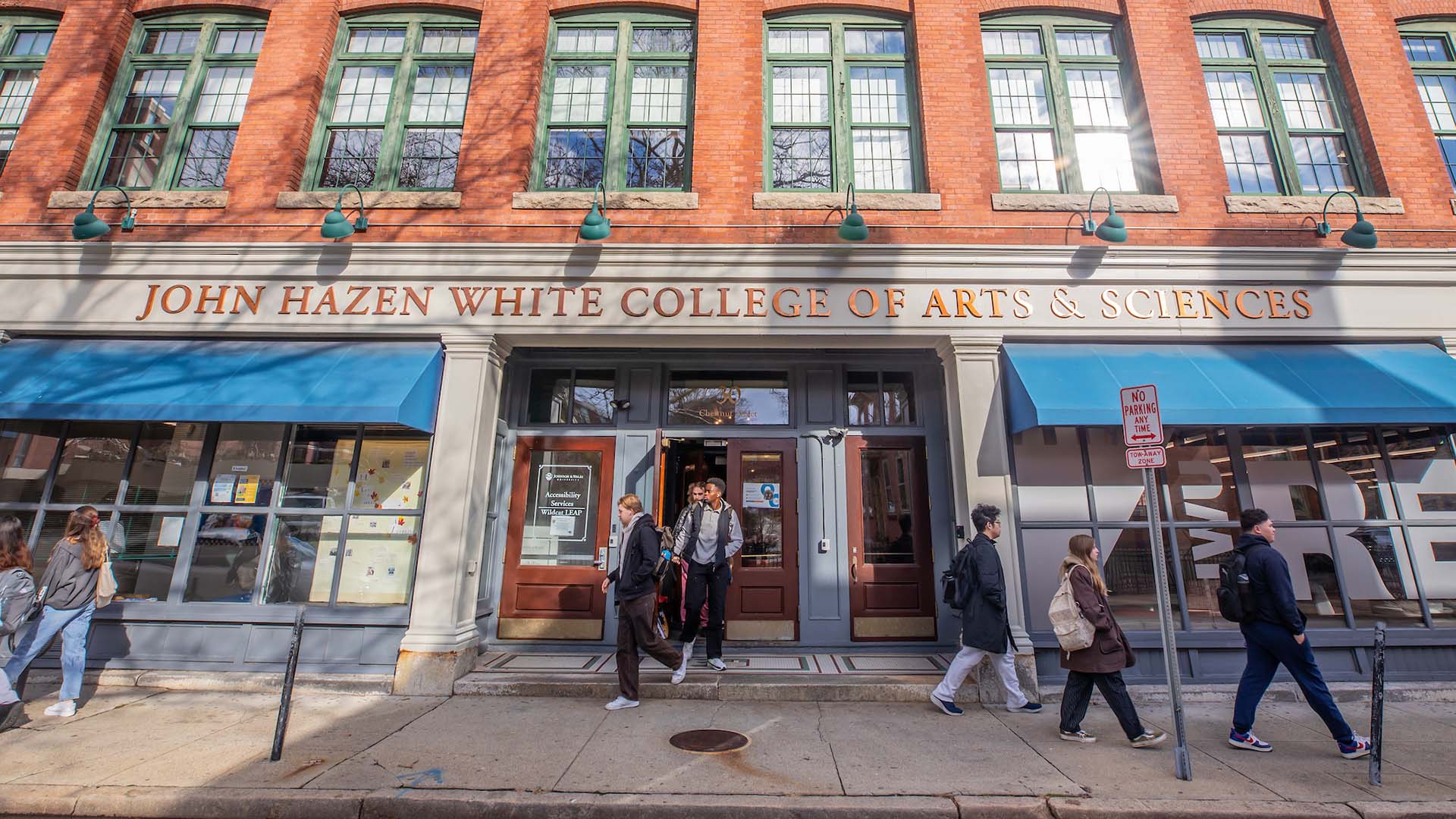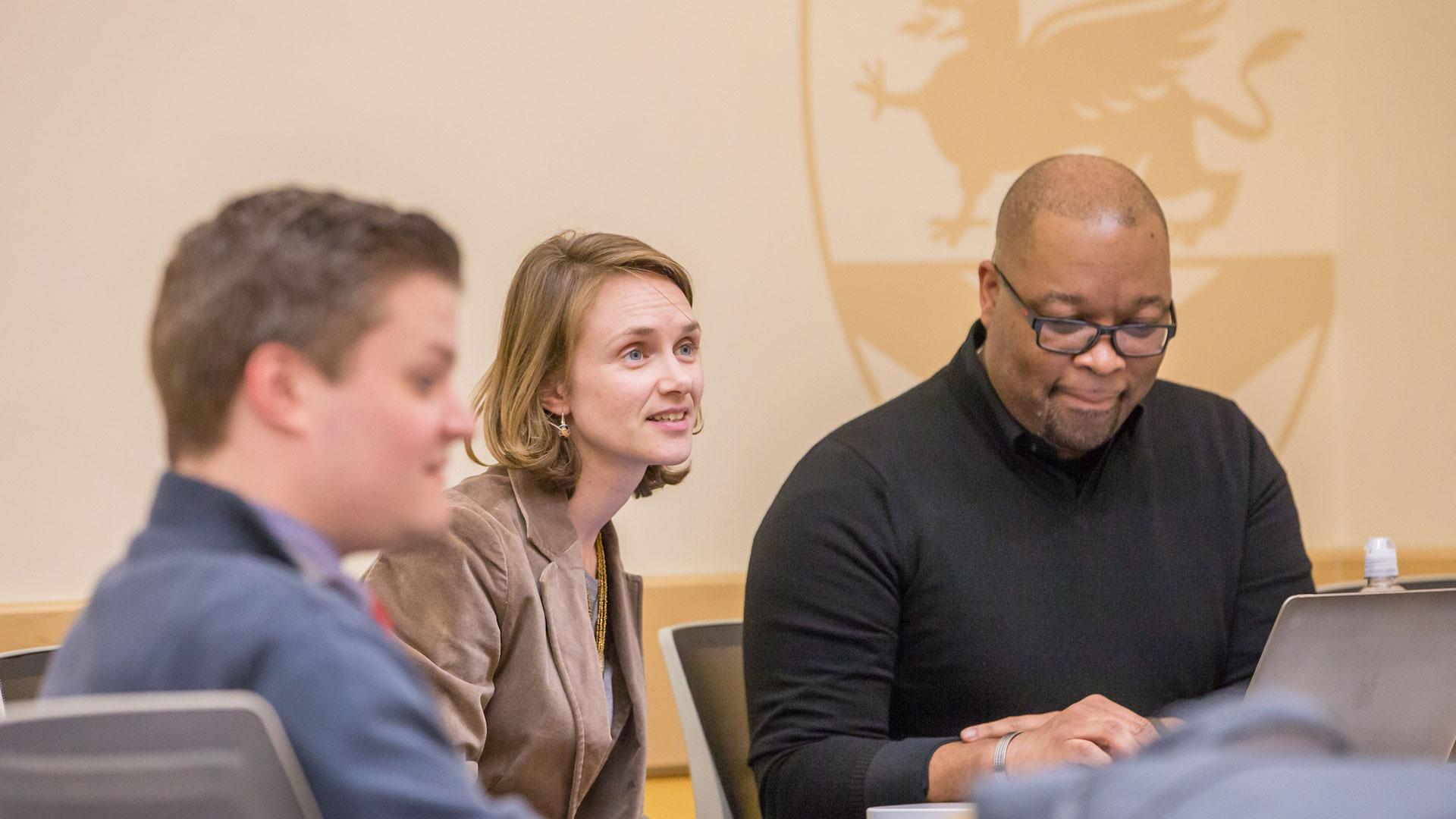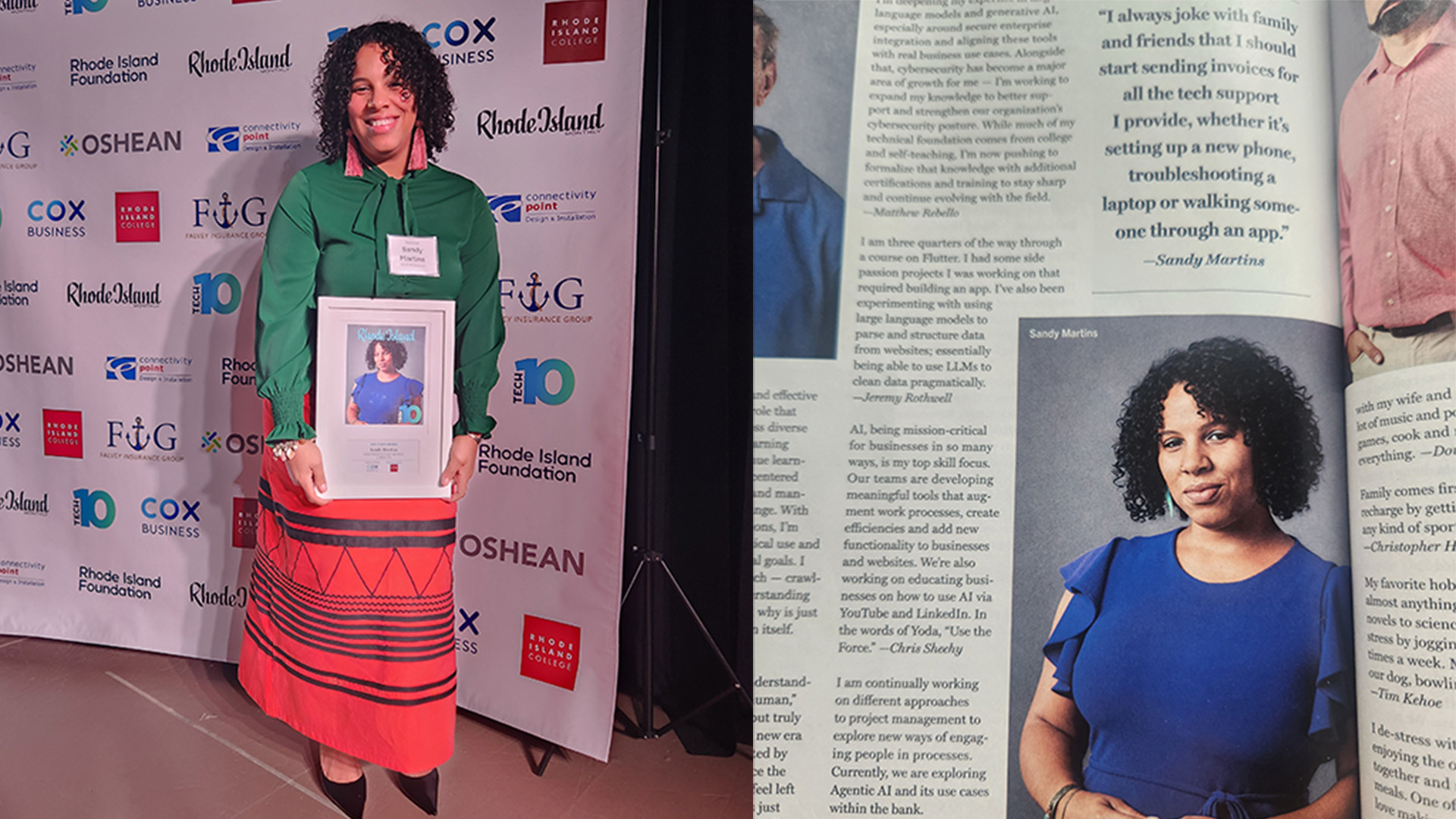JWU Students Win Top Awards at Hackathons
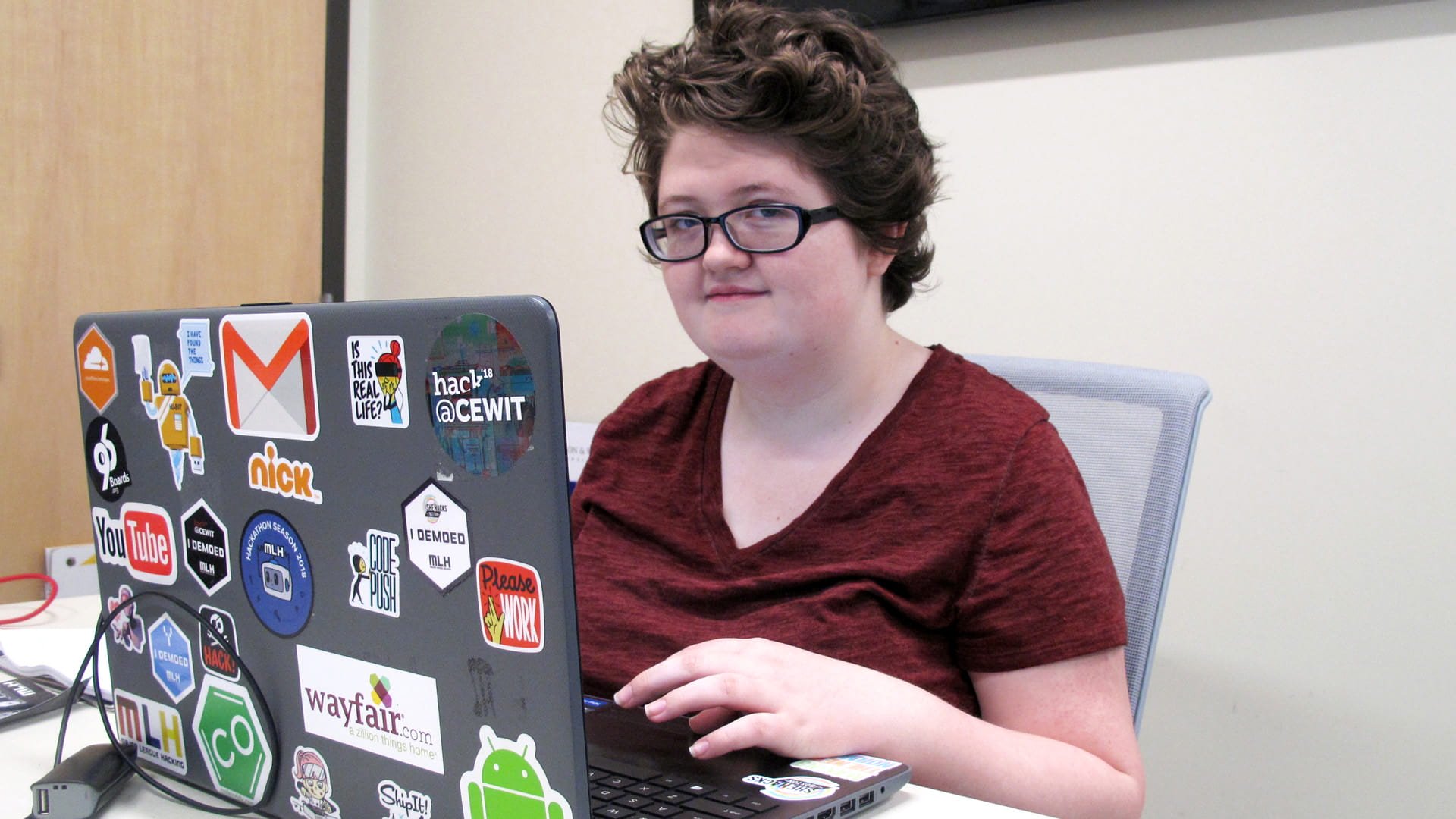
Imagine having less than 36 hours to create an app from scratch. Now think of having to execute that idea as part of a team whose members you’ve just met. Could you do it?
Software Engineering major Frances Mulligan ’20 did that and more recently during the first SheHacks Boston hackathon competition. Mulligan, along with her five teammates, built a mobile app called PuppyTime. Together they won the award for Most Entrepreneurial Hack and Major League Hacking AWS, earning a chance to pitch their product to venture capitalists in Boston for up to $25,000 in funding.
“It was really intense. But it was also really fun,” says Mulligan. “Hackathons are typically between 24 and 72 hours, so you have to create something over that weekend. You have to get your ideas rolling pretty quickly and be quick on your feet. Because if someone already created that idea, or you find that it’s not going to work, you have to think fast and figure out a new direction to go in.”
"It was really intense. But it was also really fun."
For Mulligan, not knowing who her teammates would be or even what they could create during the hackathon is part of the fun.
“It’s kind of crazy because this is only the second hackathon that I’ve ever gone to,” she says. “I think it’s all part of the fun, but it can also make you kind of nervous. I actually met my teammates through the chat channel for the hackathon. But I had not met any of them in person before the day of the hackathon.”
Mulligan notes that as soon as she met her teammates they talked about which programming languages they were each good at to determine how they could work as a team. They then began to discuss some project ideas and finally settled on PuppyTime.
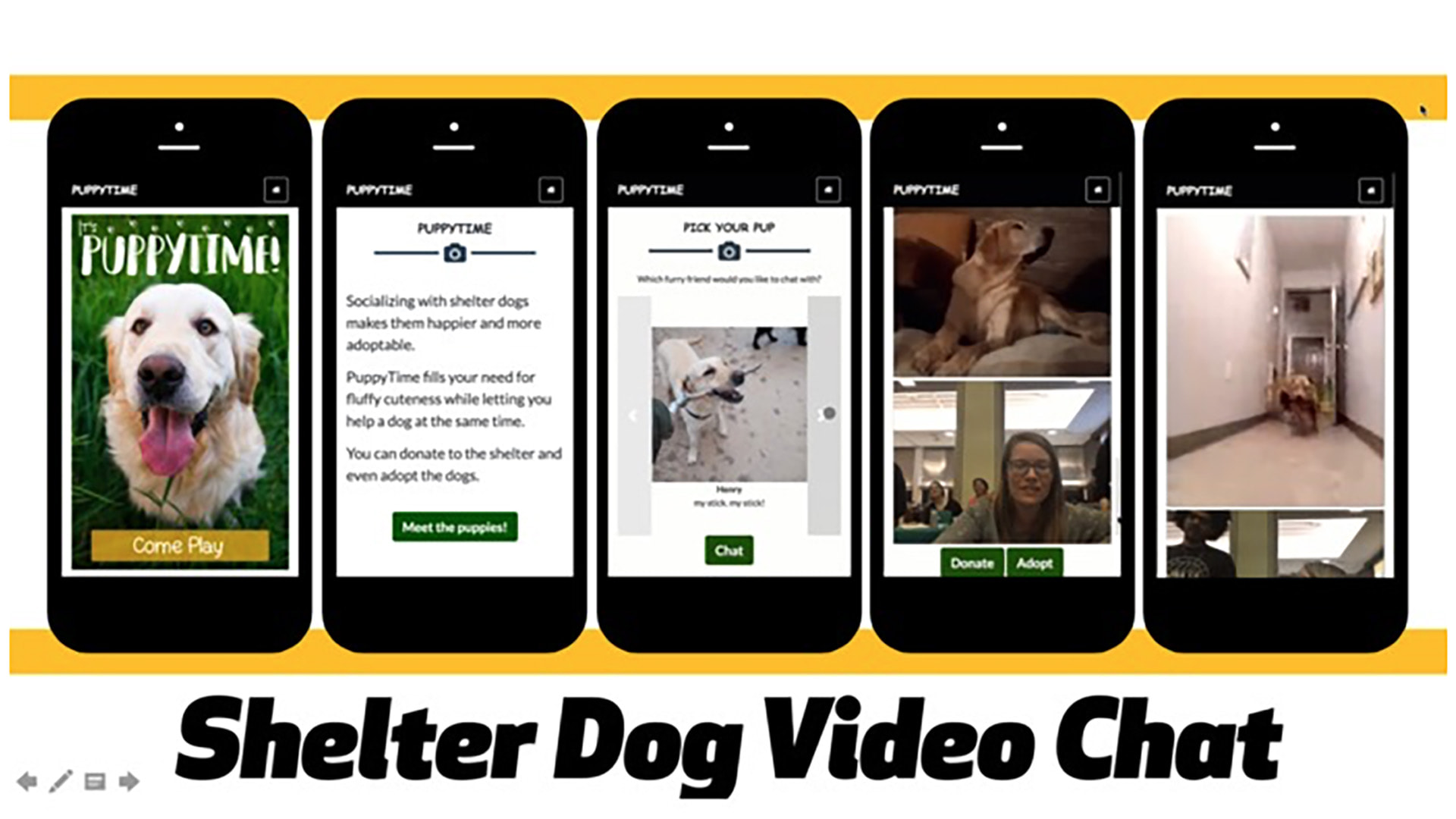
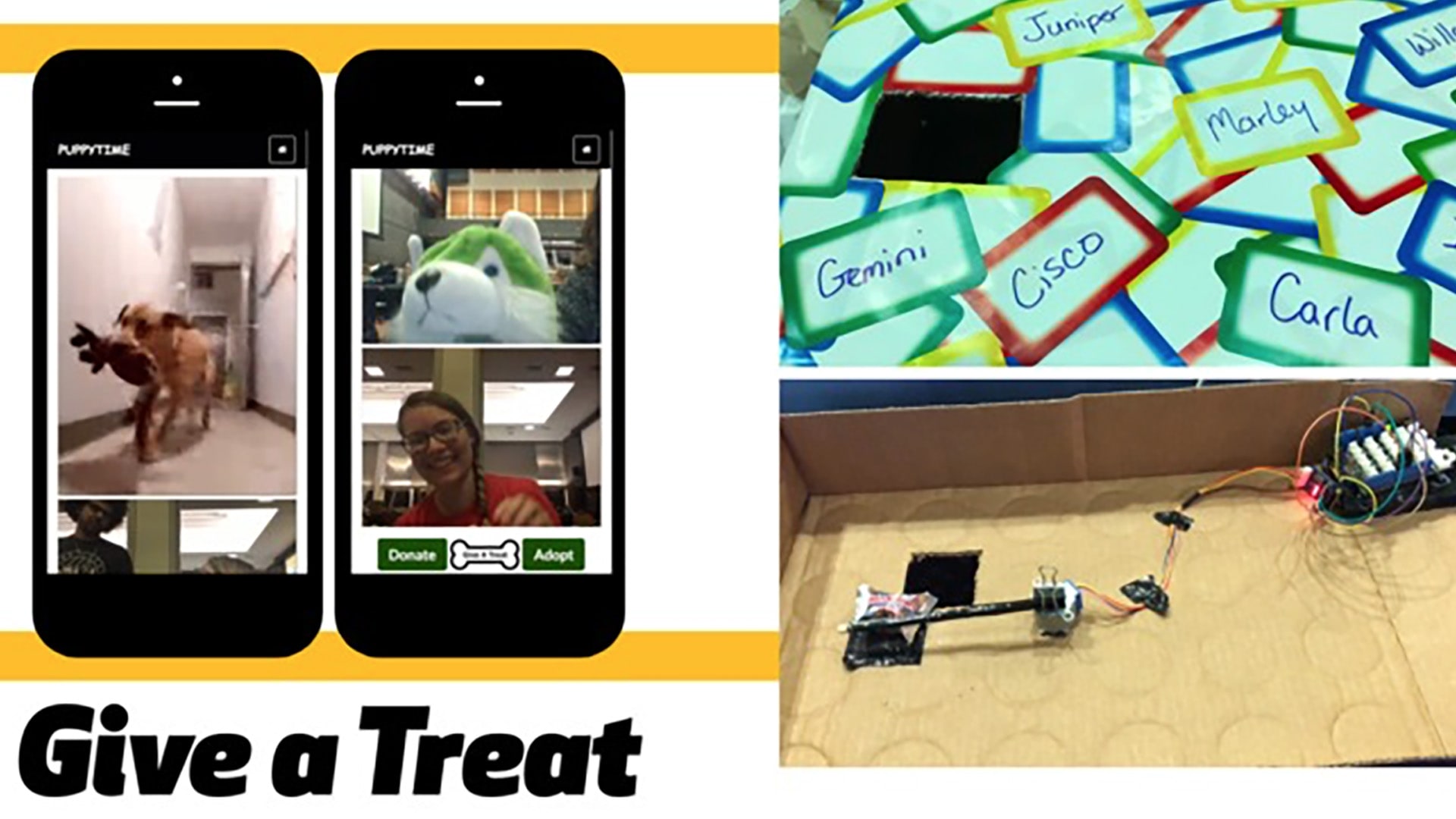
“We created a video chat app for people to talk with shelter dogs and help them get socialized,” Mulligan says. “[The app] has a function that allows users to start the adoption process. So, you could adopt the dog that you’ve been talking to. There’s also an option for people to donate to that shelter.”
According to the team’s project description on DevPost, they built PuppyTime “with a modified Bootstrap template, JavaScript live video, and PayPal and PetFinder RESTful APIs.” The app also has a “give a treat” button that “calls a RESTful service that runs a treat dispensing routine on the Arduino 101 with Grove Shield and stepper motor written in C.”
"I had never worked this much on an idea in such a short amount of time."
“I was the person that helped with the back-end portion of the app. I helped set up the PayPal function, with documentation and the actual presentation portion of the work,” Mulligan says. It was really interesting because I had never worked this much on an idea in such a short amount of time.”
She adds, “Competing in SheHacks was a great opportunity to meet so many young women pursuing common goals in a field that is typically dominated by men. We were thrilled to learn that our team will have the opportunity to present our concept to venture capitalists, with the possibility of receiving funding.”
“This whole thing is kind of surreal for me, because just a couple of months ago I was just someone working on coding during my classes. And now, I’m this person that could possibly have a business in the future,” Mulligan says.
"This whole thing is kind of surreal for me."
Another Hackathon Win at Stony Brook University
Before competing in SheHacks, Mulligan and three JWU classmates, participated in a hackathon at Stony Brook University.
“My teammates were Alayna Valadez, Sarah Andraka and Kenneth Morales, and we came up with a network security system for your Alexa to keep unauthorized people from getting onto your Wi-Fi network,” Mulligan says. The team’s project name was Alexa Network Interface, and its DevPost page says they built it using Amazon Web Services (AWS) and Lambda.
